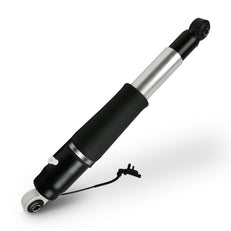Air compressors are essential tools in various industries, from automotive to construction. Understanding the different types of compressors, their uses, and maintenance tips can significantly enhance their performance and longevity. This comprehensive guide aims to provide valuable insights into the world of compressors.

Types of Compressors
When it comes to compressors, there are several types, each designed for specific applications. Here are the most common types:
- Reciprocating Compressors: These compressors use a piston to compress air. They are ideal for high-pressure applications and are commonly found in workshops.
- Rotary Screw Compressors: These utilize two rotating screws to compress air. They are efficient for continuous operation and are often used in industrial settings.
- Centrifugal Compressors: These compressors use a rotating disk to increase air velocity. They are suitable for large-scale operations and provide a steady flow of compressed air.
- Scroll Compressors: These feature two spiral-shaped scrolls that compress air. They are known for their quiet operation and energy efficiency.
Uses of Compressors
Compressors have a wide range of applications across various sectors. Some common uses include:
- Pneumatic Tools: Many tools, such as nail guns and impact wrenches, rely on compressed air for operation.
- Automotive Services: Compressors are crucial in tire inflation, painting, and powering air suspension systems. For instance, you can explore
 for specialized air suspension solutions.
for specialized air suspension solutions. - HVAC Systems: Compressors play a vital role in heating, ventilation, and air conditioning systems, ensuring optimal performance.
- Manufacturing: In manufacturing, compressors are used for powering machinery and equipment, enhancing productivity.
Maintenance Tips for Compressors
Proper maintenance is crucial for ensuring the longevity and efficiency of your compressor. Here are some essential maintenance tips:
- Regularly Check Oil Levels: Ensure that the oil levels are adequate, especially for reciprocating compressors.
- Inspect Air Filters: Clean or replace air filters regularly to maintain airflow and efficiency.
- Drain Water from Tanks: Moisture can accumulate in the tank; draining it prevents rust and corrosion.
- Monitor Pressure Levels: Keeping an eye on pressure levels helps in identifying potential issues early.
Conclusion
Understanding the different types of compressors, their uses, and maintenance practices is vital for anyone looking to utilize these powerful tools effectively. By following the tips outlined in this guide, you can ensure that your compressor operates efficiently and lasts for years to come. Whether you are in the automotive industry or a DIY enthusiast, mastering the art of compressor usage will undoubtedly enhance your projects.






